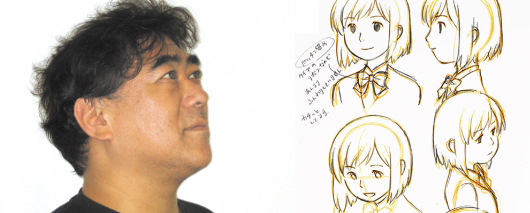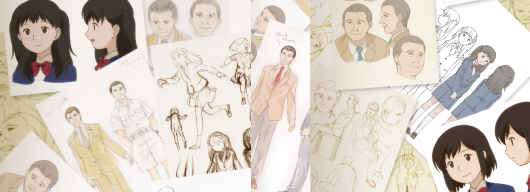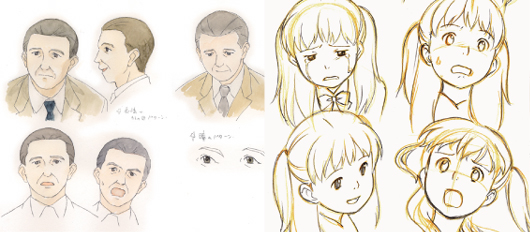|
|
|
 |
Q: Why did you decide to make two junior high school girls, Mii and Yuko, the main characters?
A: To make it easy for people to connect emotionally. When people hear the film is about war and medical care, they're inclined to think it will be hard to understand. So I decided to have the story told from the viewpoint of two ordinary young girls. It's structured so that Mii has questions that Yuko answers. I considered having just one girl or using a brother and sister. But because the story takes place during wartime and in order to focus on the doctor's humanity rather than the war, it's a little lonesome with just one character. And boys have an aggressive side, so I decided two girls would be best. Incidentally, their names come from the English "me" and "you." |
 |
Q: Was there anything you were particularly concerned about in making this film?
A: The portrayal of war. I've tried not to distinguish between the good guys and the bad guys. That's the stance of the Red Cross. I was also concerned about whether or not we could say what we wanted to say in 60 minutes. If we can't, we'll just have to make it a trilogy. Just kidding, but it's going to be a little difficult with the current scenario, and one area of concern is how to cut it down.
Q: The depiction of Dr. Junod is particularly important. Did you do anything special in that regard?
A: We avoided directly addressing the issue of the atomic bombing. What's important with this production is not so much the bombing as the strength and warmth of the spirit of humanity. Ms. Tsuya, the chair of the production committee, says her concern is the depiction of devotion to humanity rather than the atomic bombing or war, so I picked up on that idea. |
 |
Q: What was the most difficult aspect of this production?
A: We had particular trouble finding background materials because there are so few. There are plenty of materials describing Dr. Junod's accomplishments, but it's difficult to learn about a person's nature and character from documents. We just recently learned that Dr. Junod was good at doing magic tricks. He used magic to get to know people. I'd like to incorporate that into the story. Also, I think it's very difficult to create something on the theme of devotion to humanity. For example, from the public's standpoint it is hidden from history such as the war and the atomic bombing, or I guess I should say people don't seem to want to focus on it. I think what's important is kindness and love, but with a long book it's difficult to convey that. So I have Mii and Yuko consider concepts outlined in Le Troisième Combattant (Warrior Without Weapons) that might be difficult to understand.
|
 |
Q: Is there something you hope to convey to audiences with this film? What sort of impression do you want them to be left with?
A: My main concern is that people learn about Dr. Junod. The Junod Festival celebrated its 20th anniversary in June, but unfortunately there isn't much public awareness of the event. What's important is gaining more recognition. I think we need to start from there. After that, I hope those who see the film will take some sort of action. Our job is to create that starting point. Audience's impressions of the film are secondary.
Q: What other productions have you worked on?
A: I produced a film about the atomic bombing called "Makkuro na O-bento" ("The Charred Lunchbox"). It was an educational animated film. I've worked on a lot of other films, but if I get started talking about them I'll never stop! |
|
|